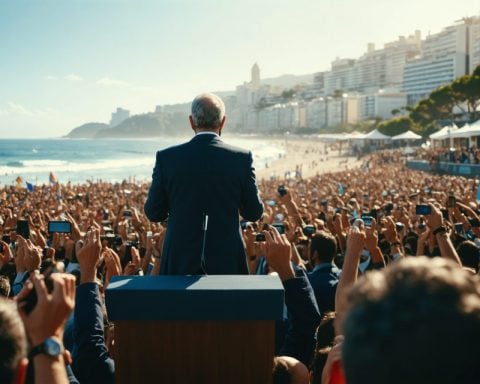- Clint Hill, known for his heroic actions during the assassination of President Kennedy, has passed away at 93.
- Hill was the Secret Service agent who courageously attempted to protect the President and First Lady on November 22, 1963.
- He is captured trying to shield the President in the famous Zapruder film during the tragic events at Dealey Plaza.
- His testimony before the Warren Commission and a 1975 interview reveal the personal burdens and sense of duty that followed him.
- Hill’s legacy is defined by resilience and dedication, transcending the despair of that fateful day.
- In his later years, Hill embraced peace and love, illustrating personal triumph over historical shadows.
Clint Hill, a name etched in the annals of American history, passed away at 93, leaving behind a legacy entwined with one of the nation’s darkest days. Known to many through the grainy frames of Abraham Zapruder’s infamous film, Hill was the Secret Service agent who attempted the impossible on November 22, 1963, as shots rang out in Dealey Plaza.
Under the stark Texas sun, Hill, tasked with protecting First Lady Jacqueline Kennedy, reacted with instinctive valor. As the convoy slithered through the plaza, a shattering report cracked the air. Hill, without pause, lunged from his post on the follow-up car, racing against the relentless seconds toward the presidential limousine. He gripped the trunk with tenacity, hauling himself aboard in a desperate bid to shield President Kennedy and the First Lady. Yet, history’s cruel hand cannot be rewritten.
This moment, immortalized in Zapruder’s haunting footage, dogged Hill for decades, a relentless reminder of the life he couldn’t save. The weight of that day became a lifelong burden, a shadow from which he wrestled to escape. His testimony before the Warren Commission and candid reveals in a heartfelt 1975 interview highlighted his enduring sense of duty and personal anguish.
Despite the torment, Hill’s endeavors bore witness to a dedication that transcended failure. He rose through the ranks, ultimately becoming an emblem of resilience. Later, through public speaking and writings, Hill unspooled his experiences, opening a window into the soul of a man forever marked by a moment in time.
Clint Hill’s life underlines a poignant truth: heroism is not in outcome but in effort. His final chapters saw peace and love with his wife Lisa, a testament to the personal triumph over past tragedies. Though his brave heart has ceased, his story remains a powerful reminder of the relentless pursuit to protect and serve, undeterred by the inevitable shadows of history.
The Untold Story of Clint Hill: Lessons in Duty, Resilience, and Redemption
Legacy of Clint Hill: A Deeper Dive into His Life and Impact
Clint Hill is a figure whose story is deeply embedded in the tapestry of American history. While his heroic attempt during the assassination of President John F. Kennedy in 1963 is widely known, there are numerous facets to his life and career that are worth exploring further. Understanding these can provide valuable insights into the intricacies of duty, resilience, and personal redemption.
Real-World Use Cases: Lessons from Clint Hill’s Career
1. Training and Preparedness in Security Services:
– Hill’s swift response on that fateful day is a testament to the importance of rigorous training and preparedness in security services. Organizations like the Secret Service rely heavily on drills and scenario planning, which can be applied to improve emergency responses in various fields, from corporate security to community safety services.
2. Crisis Management Techniques:
– Hill’s actions under extreme pressure exemplify effective crisis management. His ability to make split-second decisions provides a model for developing crisis management skills, emphasizing calmness, clarity, and prioritization amidst chaos.
Reviews & Comparisons: Secret Service Innovations
– The Secret Service has evolved significantly since Hill’s era, integrating advanced technologies and new protocols for protecting dignitaries. Comparing Hill’s time with the current operations highlights innovations such as the use of advanced surveillance systems, real-time data sharing, and next-generation protection gear, all contributing to enhanced protection capacities today.
Controversies & Limitations: The Burden of Memory
– Hill’s personal anguish following the assassination underscores the psychological impact endured by first responders and security personnel following traumatic events. This highlights the limitations in mental health support available during that time, leading to contemporary improvements in psychological support and counseling services for personnel exposed to traumatic situations.
Features and Specs: A Modern Secret Service
– Today’s Secret Service provides agents with cutting-edge communication and surveillance technologies that were unimaginable in Hill’s time. These advancements represent the ongoing commitment to improving the efficiency and efficacy of protective measures.
Security & Sustainability: Evolving Threat Landscapes
– The evolution of the Secret Service reflects the need for adaptability in the face of changing threat landscapes. Security protocols now incorporate cyber-security measures and environmental sustainability in protective operations, ensuring readiness while minimizing ecological footprints.
Insights & Predictions: The Future of Protective Services
– Looking forward, the focus in protective services may increasingly involve artificial intelligence and machine learning to predict threats and aid in emergency responses. The human element, as personified by Hill, remains crucial, but technology will play an ever-expanding role in security strategies.
Quick Tips for Aspiring Security Professionals
1. Emphasize Training:
– Regular and diverse training sessions are vital for effective service in any security role. Incorporate scenario-based drills to improve real-time decision-making.
2. Prioritize Mental Health:
– Implement robust mental health support systems for personnel to manage stress and trauma effectively.
3. Keep Abreast with Technology:
– Stay informed about the latest technological advancements in security to enhance protective measures and operational effectiveness.
Clint Hill’s story is one of courage, dedication, and an enduring impact on the field of personal protection. His legacy serves as a guiding light for current and future generations in security services, underscoring the timeless value of resilience and unwavering commitment in the pursuit of duty.
For more information on security protocols and innovations, visit the United States Secret Service official website.











